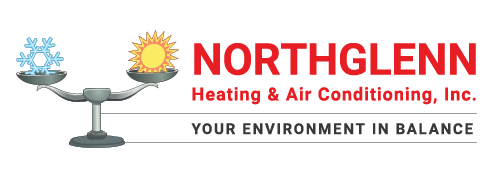
We spend lots of time in our homes. In reality, the Environmental Protection Agency (EPA) has determined being inside accounts for 90% of our days. Although, the EPA also has found your indoor air can be three to five times worse than outdoors.
That’s due to the fact our residences are firmly sealed to enhance energy efficiency. While this is fantastic for your utility expenses, it’s not so fantastic if you’re among the 40% of the population with respiratory allergies.
When outside ventilation is restricted, pollutants including dust and volatile organic compounds (VOCs) may get stuck. As a result, these pollutants could aggravate your allergies.
You can enhance your indoor air quality with clean air and routine cleaning and vacuuming. But if you’re still struggling with symptoms during the time you’re at your residence, an air purifier may be able to provide assistance.
While it can’t eliminate pollutants that have gotten trapped in your couch or carpeting, it could help clean the air circulating around your residence.
And air purification has also been scientifically confirmed to help lower some allergic symptoms, according to the American College of Allergy, Asthma and Immunology. It may also be appropriate if you or a loved one has lung trouble, including emphysema or COPD.
There are two models, a portable air purifier or a whole-home air purifier. We’ll go over the distinctions so you can determine what’s right for your home.
Whole-House Air Purifier vs. Portable Air Purifiers
A portable air purifier is for a single room. A whole-house air purifier accompanies your heating and cooling equipment to purify your full house. Some types can clean by themselves when your heating and cooling equipment isn’t running.
What’s the Best Air Purifier for Allergies?
Seek a model with a High Efficiency Particulate Air (HEPA) filter. HEPA filters are used in hospitals and offer the greatest filtration you can find, as they trap 99.97% of particles in the air.
HEPA filters are even more useful when combined with an ultraviolet (UV) germicidal light. This mighty mixture can eliminate dust, dander, pollen and mold, all of which are standard allergens. For the best in air purification, consider a system that also has a carbon-based filter to reduce household smells.
Avoid buying an air purifier that generates ozone, which is the top ingredient in smog. The EPA advises ozone might irritate respiratory issues, even when discharged at small settings.
The Allergy and Asthma Foundation of America has created a listing of questions to consider when purchasing an air purifier.
- What can this purifier remove from the air? What doesn’t it extract?
- What’s its clean air delivery rate? (A higher number means air will be purified more quickly.)
- How often does the filter or UV bulb need to be changed]? Can I finish that without help?
- How much do replacement filters or bulbs cost?
How to Decrease Seasonal Allergy Symptoms
Want to receive the {top|most excellent|best] performance from your new air purification system? The Mayo Clinic advises completing other measures to decrease your exposure to seasonal allergy triggers.
- Stay in your home and keep windows and doors shut when pollen counts are high.
- Have someone else mow the lawn or pull weeds, since these tasks can trigger symptoms. If you must do this work on your own, consider wearing a pollen mask. You should also shower without delay and put on new clothes once you’re completed.
- Avoid stringing up laundry outdoors.
- Turn on the AC while indoors or while you’re on the road. Consider adding a high efficiency air filter in your residence’s heating and cooling equipment.
- Even out your residence’s humidity saturation with a whole-house dehumidifier.
- Hardwood, tile or linoleum are the best flooring kinds for decreasing indoor allergens. If your home has carpet, install a HEPA filter on your vacuum cleaner.
Let Our Specialists Take Care of Your Indoor Air Quality Necessities
Want to move forward with installing a whole-house air purifier? Give our experts a call at 303-452-4146 or contact us online to get an appointment. We’ll help you choose the best system for your house and budget.
